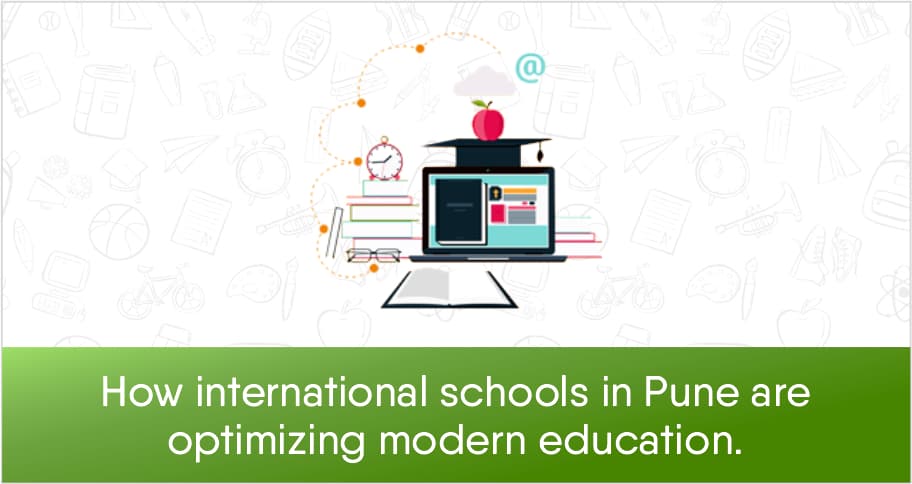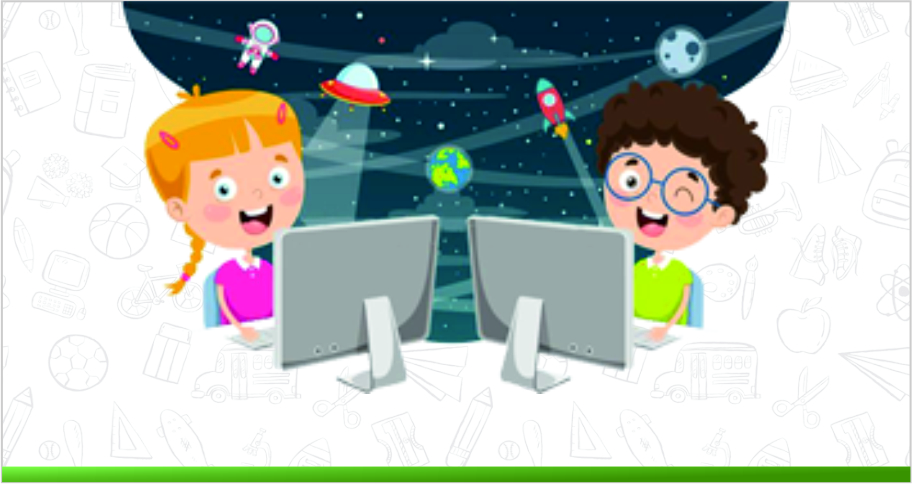How International Schools In Pune Are Optimizing Modern Education
By orchidadmin |
Date 05-09-2023

Admissions Open for
Introduction
From the very first Nalanda university to the current international schools and CBSE schools in Pune, Education has come a long way. Since the inception of civilization, learning has always been with us in one form or the other. Our ancestors conquered the wilds because they exchanged information about important things for the survival of the species, like where the predators roam or where the hunt is gainful. Though today’s education does not teach children to bring down a woolly mammoth with spears, it sure does equip them to survive the modern jungle that is the world.
Education was more traditional between the students and teacher just a few centuries ago when Gurukul was followed in India. Children used to live in their Guru’s home and learn archery, arts, culture, the ruling principles, and self-defence.
In the current education system, children are made to acquire skills to excel in various fields. It helps to impart knowledge in writing, science, and technology, economics and politics, agriculture.
Periodic examinations are conducted to test the pupils’ skills and maintain the standard of the education system. Newer technologies are adapted for teaching to improve the quality of education. Live demonstrations of experiments, classes with projectors and computers, creative activities, panel discussions, projects and publications, and field trips help accentuate the students’ learning abilities.

Children do not use slates and chalk to learn stuff anymore. They use iPads or tablets or one of the myriads of devices with their tiny, nimble fingers to learn anything from ABCDs to arithmetics. From a traditional Gurukul to an iPad, the idea remains the same: to educate posterity to have a fulfilling life and elevate humanity to the next level.
Seven reasons why international schools optimize modern education
Developed countries have a robust education system compared to ours. Unnecessary facts or information without any local relevance are absent in their curricula. The time children spend at schools is invaluable to the betterment of tomorrow’s humanity, so the syllabus of developed nations is streamlined.
And since International schools follow the US or UK’s curriculum or other international curricula such as International Baccalaureate, Edexcel, Cambridge Assessment International Education, International Primary Curriculum, or International General Certificate of Secondary Education, you can bet your child wastes almost no time studying unimportant and irrelevant. This time saved is utilized in education that actually matters and elevates the child’s knowledge and increases her/his chances of becoming successful and landing a high-paying respectable job. Apart from the curricula, they also have many positives, some of which we can see through the international schools in Pune:
- They frequently use large screen TVs or projectors to teach lessons that can be understood better with a visual aid. Developed countries made TVs a necessary part of their classrooms decades ago, and now, international schools in Pune are implementing the same for its benefit.

- Visual Learning Environment (VLM) is a feature that has become famous during the pandemic. Basically, it is just the school’s server that stores course materials, videos, PPTs, and even chat boards and live classes. Again, developed countries have been using the internet for education for a long time, while it is almost unheard of in India before the pandemic, except, of course, the international schools were using it way before coronavirus.
- One of the newest additions to modern education in international schools is interdisciplinary learning. A child should know to combine disciplines (like math, physics, chemistry, etc.) and solve a problem. It is a requisite skill used to solve problems in the real world that children usually learn during college. But everything around us–mobiles, motor vehicles, electricity–is the result of interdisciplinary fields. Mobile phones are possible because of the combination of chemistry, math, physics, and of course, software, among others. And international schools promote this from very early on and teach children to solve real-world problems with interdisciplinary solutions.
- Modern education in international schools respects children’s curiosity; they, in fact, encourage it. Because curiosity leads to experimentation, research, and eventually invention, so a child will never be dissuaded from trying anything that they feel like. Freedom to freely think and do something is an incredible ability of children that usually wanes in other schools but is preserved and nurtured in international schools in Pune.
- Teamwork is the reason for humanity’s success. And it is only growing ever since. As it is in our nature, and due to its numerous benefits, modern education urges children to solve problems as a team. While children learn the virtue of teamwork, they also understand sharing responsibilities and being inclusive of diverse people.
- Everything is not available in textbooks. And in schools in Pune, children search for extra resources and research materials under the guidance of teachers to learn more about a subject. It makes them confident, self-reliable, and go-getters.
- While it is true that state board schools and most private schools have classrooms that are crammed, it is completely the opposite in international schools. As international schools in Pune follow the education structure of countries like the US, it is really not surprising that they have sparse and less populous classrooms so that children receive the necessary attention.
CBSE Schools In Popular Cities
- CBSE Schools in Bangalore
- CBSE Schools in Mumbai
- CBSE Schools in Pune
- CBSE Schools in Hyderabad
- CBSE Schools in Chennai
- CBSE Schools in Gurgaon
- CBSE Schools in Kolkata
- CBSE Schools in Indore
- CBSE Schools in Sonipat
- CBSE Schools in Delhi
- CBSE Schools in Rohtak
- CBSE Schools in Bhopal
- CBSE Schools in Aurangabad
- CBSE Schools in Jabalpur
- CBSE Schools in Jaipur
- CBSE Schools in Jodhpur
- CBSE Schools in Nagpur
- CBSE Schools in Ahmednagar
- CBSE School In Tumkur

Call Us to know more about Orchids
Swipe Up

















